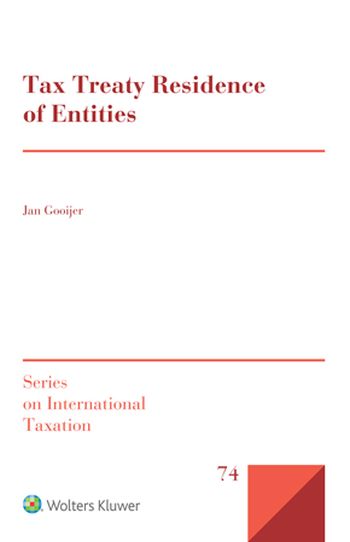
Tax Treaty Residence of Entities provides a thorough examination of the treaty rules on the residence of entities, Article 4 of the OECD Model Convention (OECD MC). Changes to the OECD MC have raised questions about the concept of residence as it applies to entities. It is of great importance to be able to determine who or what is considered ‘resident’ within the meaning of tax treaty provisions. However, the concept of residence has never been fundamentally adjusted to current circumstances in which technological developments make it possible for corporations to explore the wide gap between their actual business operations and the ‘legalistic’ requirements for corporate residence. In this study of the OECD MC – the basis for most tax treaties – the author develops a clear understanding of the content of the residence concept as regards entities and proposes solutions to current problems, finishing with his own thoroughgoing definition.
What’s in this book:
In seeking a definition of the term ‘resident’ that covers all uses in treaties, the analysis draws on, in addition to the current and earlier iterations of the OECD Model Law itself, such elements as the following:
How this will help you:
Given the inordinate importance of the definition of ‘resident’, the differences in interpretation to which the current definition gives rise and the economic developments that call for an evaluation of the provision, this thorough examination of the treaty rules on residence of entities will be welcomed by tax lawyers, corporate counsel and policymakers and academics concerned with tax law. The author’s guidance on the concept of residence for tax purposes and his original proposals for reform will prove to be of great practical value for tax practitioners.